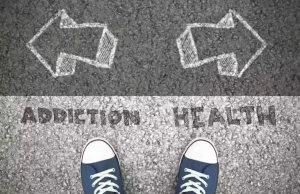
This can lead to substance dependence that may require a person to quit drinking. Some people prefer to perform self-detox in the comfort and privacy of their own homes. At-home detox and quitting “cold turkey” seem more convenient than working with a rehab facility, but these approaches have severe health risks. Showering doesn’t help you sober up, nor does it help alcohol leave your body more quickly.
The 4 Stages of Alcohol Recovery: A Path to Healing
The team also manages any medical complications that arise during alcohol withdrawal. Despite these known risks, people who are physically and psychologically dependent on alcohol struggle to break free of their addiction. Even a casual drinker can tell you that the withdrawal symptoms from alcohol after just a few drinks can be very uncomfortable. Those who have been drinking heavily or drinking for a long time can experience life-threatening withdrawal symptoms. For this reason, it’s important to undergo a medically managed alcohol detoxification at a professional alcohol addiction treatment center. This allows your body to withdraw from alcohol and stop alcohol use entirely gradually and safely.

For how long does alcohol stay in blood?
The main management for severe symptoms is long-acting benzodiazepines — typically IV diazepam or IV lorazepam. When you stop consuming alcohol after https://ecosoberhouse.com/ prolonged, heavy use, your CNS can’t respond or regulate itself fast enough. It becomes overexcited because there’s no more alcohol to slow it down.
Mild Symptoms

Deciding to taper off alcohol is a slower process that requires planning, but it can decrease both the chase of experiencing severe withdrawal symptoms and relapse. Also, withdrawal symptoms are relieved immediately by consuming additional alcohol. This puts you at a significant risk of relapse when you try to quit drinking at home without professional help. Some people with AUD become dependent on alcohol and have withdrawal symptoms when they suddenly stop drinking. The effects of withdrawal on your body and mind can be uncomfortable and dangerous. People with alcohol use disorder should be monitored by a medical professional when withdrawing from alcohol.
- If you consistently consume significant amounts of alcohol, your CNS gets used to this effect.
- Although an at-home detox can be intense, there are ways to mitigate severe side effects.
A supportive friend or family member can help you in many ways during withdrawal. It might also be worth checking out a 12-step program in your area, like Alcoholics Anonymous or SMART Recovery, to see if it feels like something that might be useful for you. If you’re having difficulty sticking to your goal or just want some extra guidance, consider reaching out for professional support. You might run into obstacles along the way that tempt you to drink. Keep in mind the reasons you chose to cut back on or quit alcohol.

Do I Need a Detox Program?
If you don’t experience intense withdrawal symptoms, an at-home detox may be a good option. However, alcohol withdrawal syndrome is dangerous and require supervision from medical professionals. alcohol detox side effects A detox is a process of ridding your body of a toxic or harmful substance you have become dependent on. Most commonly, people attempt to detox from drug or alcohol dependence.
Other factors
Withdrawal symptoms may persist for weeks or even months for heavy drinkers. These symptoms can worsen due to other substances like heroin, meth, etc. If you have any of these risk factors, it’s important that you withdraw from alcohol at a medical facility that’s equipped to prevent and treat alcohol-related complications.

- If you are experiencing severe withdrawal symptoms, you might also be given medication to help you cope better.
- When you are changing your drinking behaviors, it is common to have cravings or urges to drink alcohol.
- Millions of people join support groups to help stop drinking and stay stopped.
- Gradually tapering your alcohol use helps ease withdrawal symptoms and reduce alcohol cravings.
- If your withdrawal symptoms become too severe, they can seek help from medical professionals.
